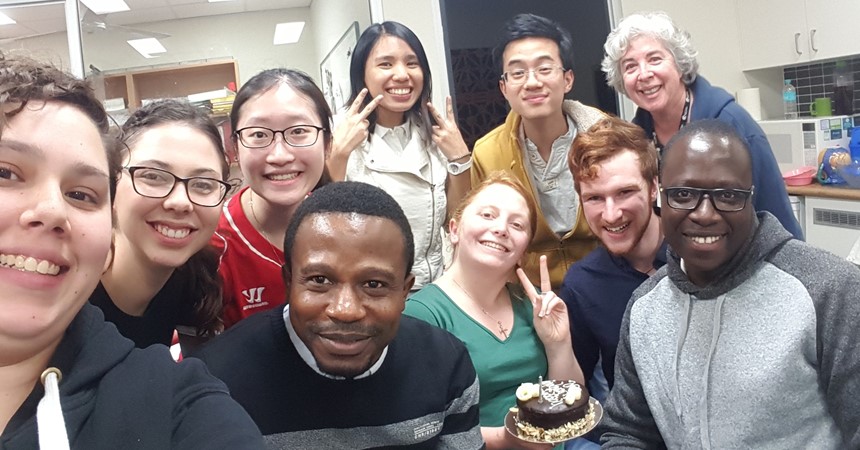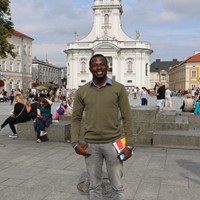She said I was going through emotional and physical stress, and she referred me to the chaplaincy centre. Here I met a team of fun and friendly men and women who introduced me to some social groups and helped me integrate into university and Australian society. The chaplains helped me deal with some of my issues, which included but were not limited to, integration and enculturation. At first I only spoke to Catholic chaplains, but as I visited often I made friends with chaplains from other faiths.
Chaplaincy became for me a home far from home, a place I could relax, have a cup of tea and interact with loving people who care about safety and spirituality of life. It is a place where everyone feels welcome and has a safe space to “chill”. We do not proselytise, rather, as chaplains we organise students of similar faith to come together to support each other and learn more about their faith.
Students of various faiths also gather as a group some days for social times, meals, spiritual sharing and to also learn how to live out and express their faith. As Catholic chaplains, we have our own faith community called “Catholic Society”. In a recent Catholic Society meeting we had as a topic: What do I do to show I am Catholic and why I am still a Catholic?
Our society members are diverse, and this was an opportunity to share their faith: how they came to the Catholic faith and why they are still living the faith. With students from more than five countries and three continents, it was great to hear these young people express their faith. About 60 per cent of our students affirmed they are what we call “Credo Catholics”, which simply means being born into a Catholic family. The others grew to embrace the faith through some personal encounters. Some of our students only embraced the faith after arriving in Australia to study, which for me is fascinating. In a society where it is easier to lose faith than to find it, our young people are still coming to faith here, which shows not all hope is lost.
We received some beautiful answers to the first part of the question: What do I do to show I am a Catholic? “I care for kids, attend Mass,” said one student. “It makes great meaning to go to Mass … the Church makes a lot of sense to me … I have not found anything better than being part of a community of faith united in the sacrifice of the Mass … this is so powerful to me.” Another student, also a Credo Catholic, said: “I volunteer, go to Mass, help and watch kids, grow, support and encourage people, help to nurture the faith of the young people and teach them by my example.”
In a different scenario, we heard from a student who comes from a country where it is difficult to practice one’s faith. According to this student: “In my country, it’s not easy to express one’s faith, however I try to live a good Christian life by being charitable and loving. It is a personal thing in my country, and I try to be nice and love people, which is a mark of being a Catholic.”
Answering the second part of the question, our students emphasised they are still Catholics because of the rich history and traditions found in the church. Many said those who know more about the Catholic faith such as bishops, priests, deacons and their godparents had helped them. One of the students was very particular about the sacrament of reconciliation. According to her “there is no better feeling than coming out of sacrament of reconciliation knowing I am loved and forgiven. Honest with Christ about my failings and shortcomings, knowing I have been forgiven.” Other responses were “continuous growth and learning is always part of why I am still a Catholic”, “I have been to other faith communities and saw how they worship”, “no church is perfect”, and “I don’t know the reason why I am still a Catholic, but I am happy being there and emotionally attached to it”.
Going by these interactions, we can see that not all hope is lost. We are lucky to find ourselves in an environment where we have the freedom to express our faith and live it out without being intimidated or afraid. If people young and old people want to dress like their celebrity or sports-star role models, those of us who follow Christ should not be afraid or intimidated to show that he is our model. That’s exactly some of the things we learn at the Catholic Society.




























































































